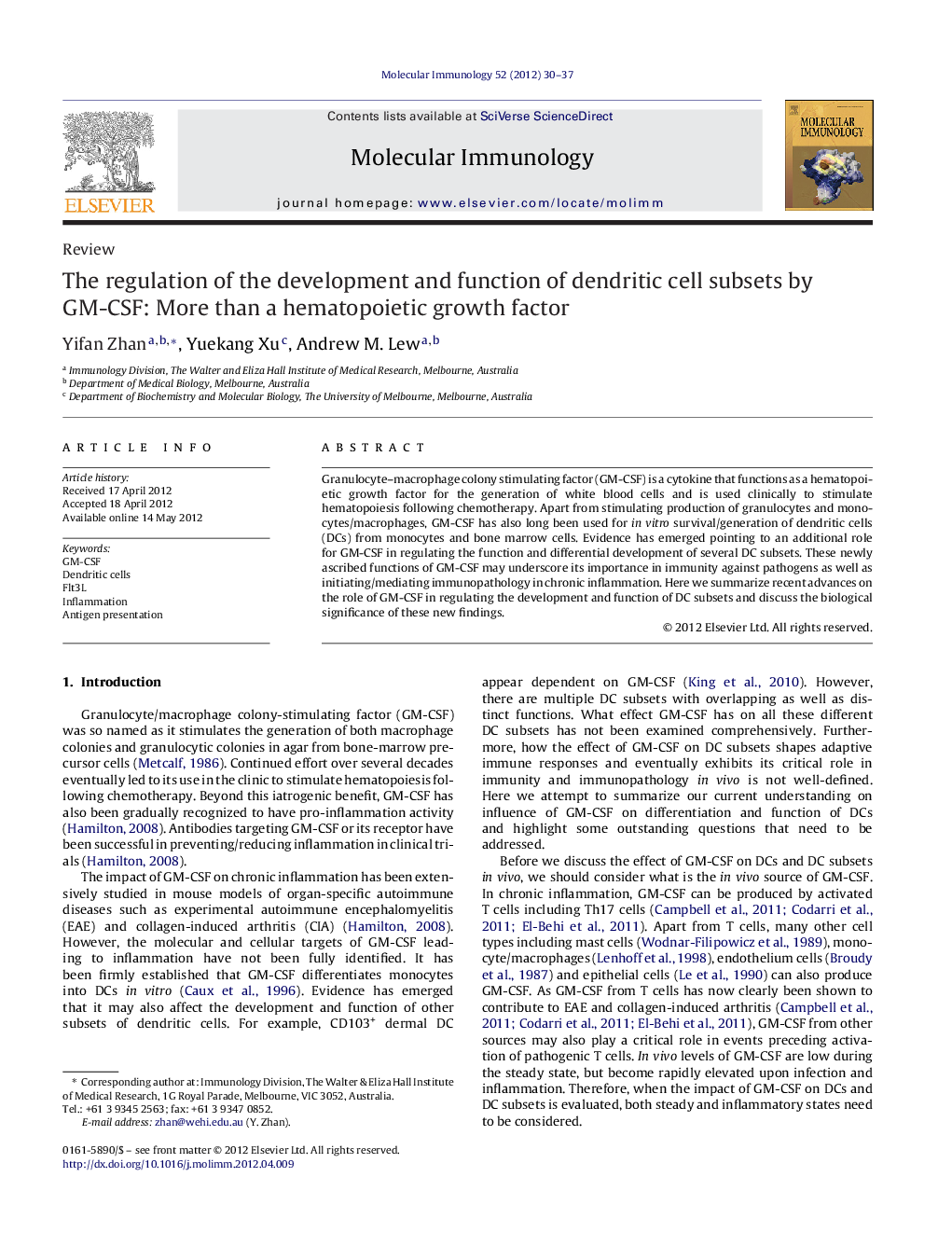| Article ID | Journal | Published Year | Pages | File Type |
|---|---|---|---|---|
| 2831210 | Molecular Immunology | 2012 | 8 Pages |
Granulocyte–macrophage colony stimulating factor (GM-CSF) is a cytokine that functions as a hematopoietic growth factor for the generation of white blood cells and is used clinically to stimulate hematopoiesis following chemotherapy. Apart from stimulating production of granulocytes and monocytes/macrophages, GM-CSF has also long been used for in vitro survival/generation of dendritic cells (DCs) from monocytes and bone marrow cells. Evidence has emerged pointing to an additional role for GM-CSF in regulating the function and differential development of several DC subsets. These newly ascribed functions of GM-CSF may underscore its importance in immunity against pathogens as well as initiating/mediating immunopathology in chronic inflammation. Here we summarize recent advances on the role of GM-CSF in regulating the development and function of DC subsets and discuss the biological significance of these new findings.
► GM-CSF regulates cross-presentation by CD8+ DCs. ► GM-CSF displays differential effects on the differentiation of DC subsets. ► Dendritic cells are cellular targets of GM-CSF to promote inflammation.
